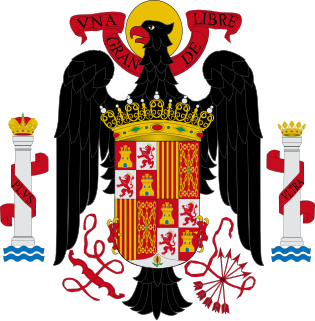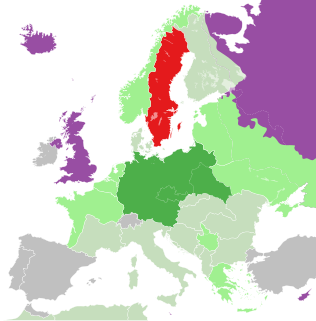 W
WThe neutral powers were countries that remained neutral during World War II. Some of these countries had large colonies abroad or had great economic power. Spain had just been through its civil war, which ended on 1 April 1939 —a war that involved several countries that subsequently participated in World War II.
 W
WThe policy of Irish neutrality during World War II was adopted by the Oireachtas at the instigation of the Taoiseach Éamon de Valera upon the outbreak of World War II in Europe. It was maintained throughout the conflict, in spite of several German air raids by aircraft that missed their intended British targets, and attacks on Ireland's shipping fleet by Allies and Axis alike. De Valera refrained from joining either the Allies or Axis powers. While the possibilities of not only a German but also a British invasion were discussed in the Dáil, and either eventuality was prepared for, with the most detailed preparations being done in tandem with the Allies under Plan W, De Valera's ruling party, Fianna Fáil, supported his neutral policy for the duration of the war.
 W
WBetween 1940 and 1944 there were some 25 cases of German submarines secretly resupplied in Spanish ports. The practice was pre-agreed between both governments in 1939, but faced with British protests related to breach of neutrality commitments, Spain started to withdraw from the scheme since the early 1942.
 W
WDuring World War II, the Spanish State under Francisco Franco espoused neutrality as its official wartime policy. This neutrality wavered at times and "strict neutrality" gave way to "non-belligerence" after the Fall of France in June 1940. Franco wrote to Adolf Hitler offering to join the war on 19 June 1940. Later the same year Franco met with Hitler in Hendaye to discuss Spain's possible accession to the Axis Powers. The meeting went nowhere, but Franco would help the Axis — whose members Italy and Germany had supported him during the Spanish Civil War — in various ways.
 W
WSweden maintained its policy of neutrality during World War II. When the war began on September 1, 1939, the fate of Sweden was unclear. But by a combination of its geopolitical location in the Scandinavian Peninsula, successful realpolitik maneuvering during an unpredictable course of events, and a dedicated military build-up after 1942, Sweden succeeded in keeping its official neutrality status throughout the war.
 W
WDuring World War I and World War II, Switzerland maintained armed neutrality, and was not invaded by its neighbors. Consequently, it was of considerable interest to belligerent states as the scene for diplomacy, espionage, and commerce, as well as being a safe haven for refugees.
 W
WVatican City pursued a policy of neutrality during World War II, under the leadership of Pope Pius XII. Although the city of Rome was occupied by Germany from Sept 1943 and the Allies from June 1944, Vatican City itself was not occupied. The Vatican organised extensive humanitarian aid throughout the duration of the conflict.